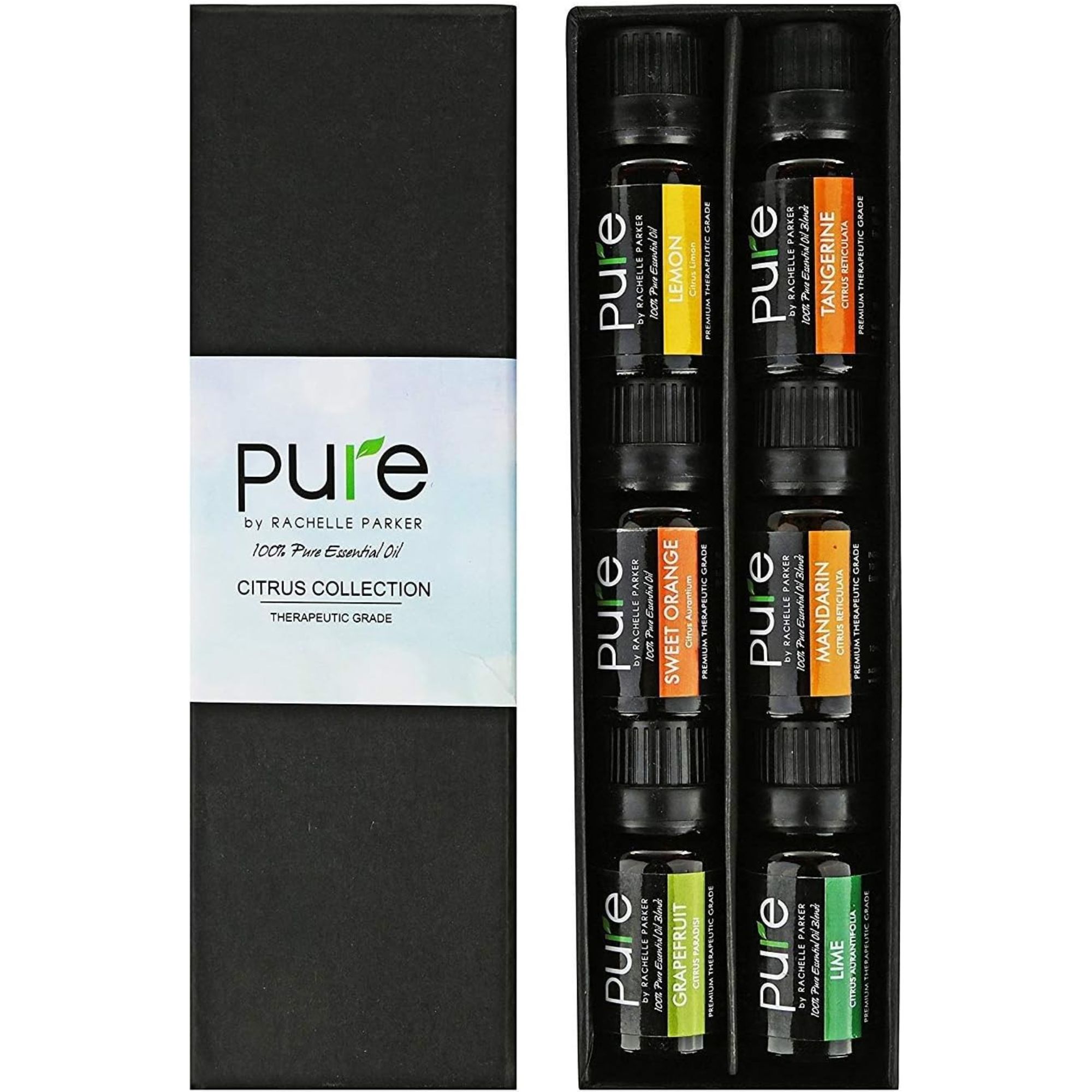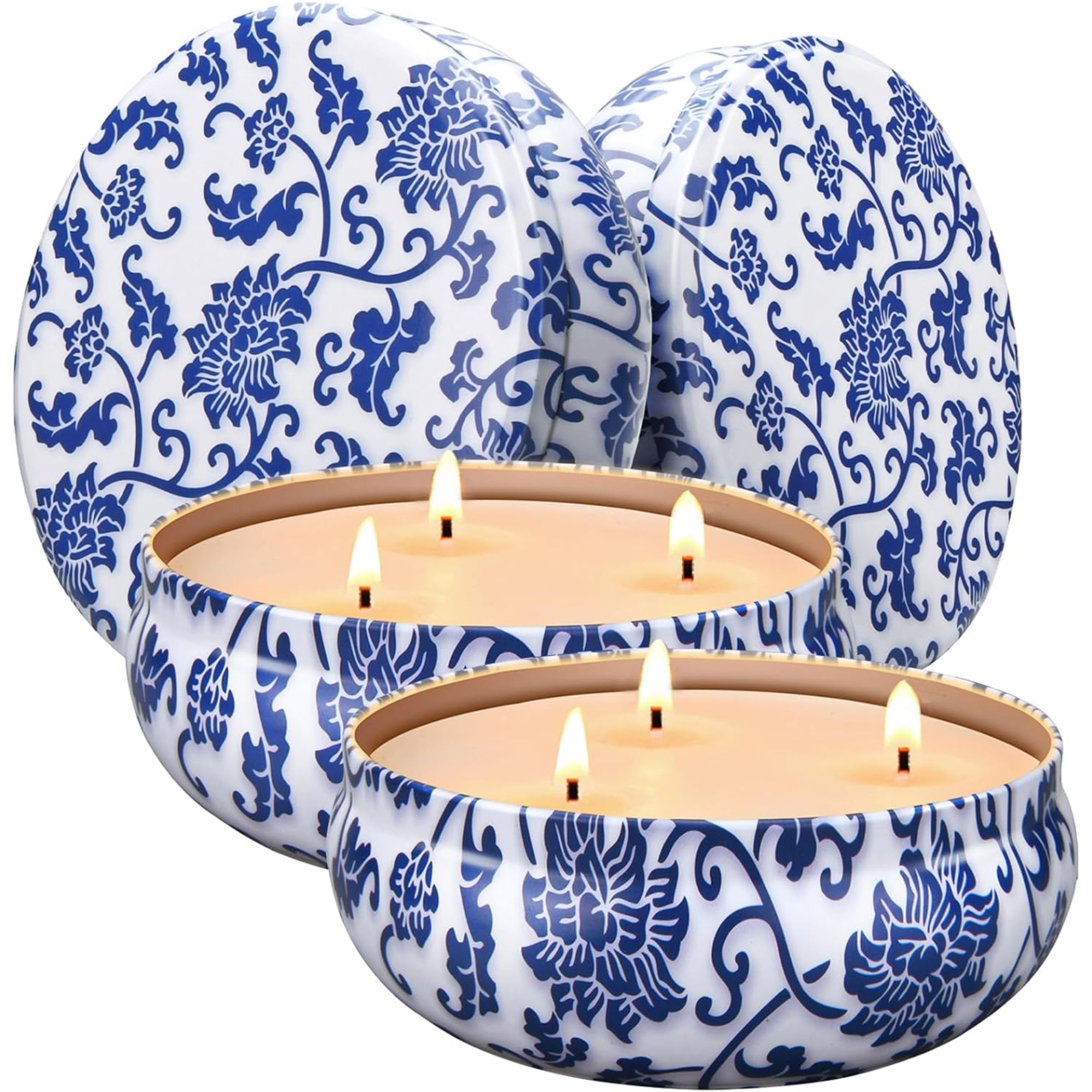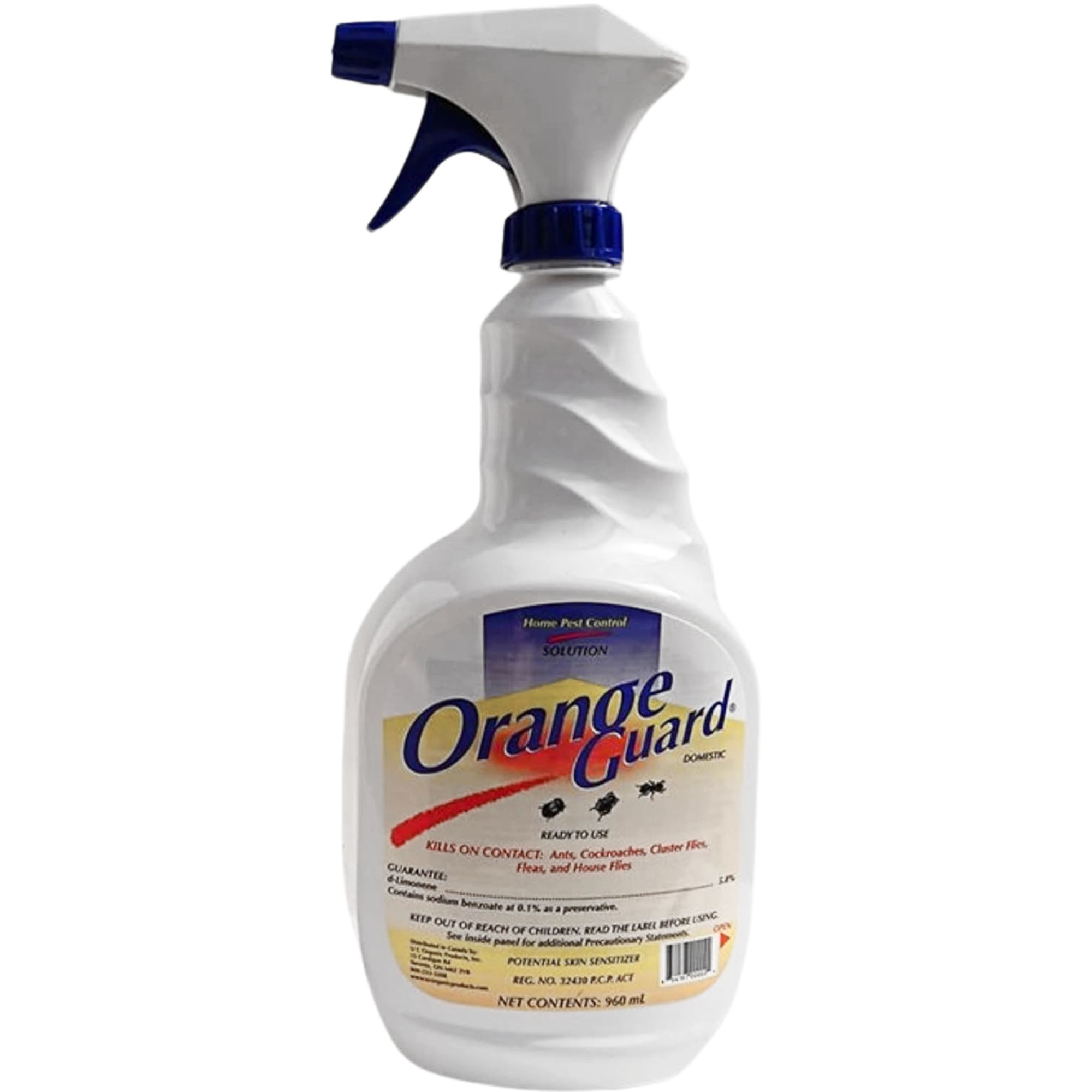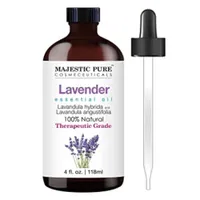11 nice-smelling scents garden pests hate – and how to use them
Many scents pleasant to humans are actually pest deterrents and can be used in tandem with other preventative measures to keep your home – and backyard – nuisance-free


Design expertise in your inbox – from inspiring decorating ideas and beautiful celebrity homes to practical gardening advice and shopping round-ups.
You are now subscribed
Your newsletter sign-up was successful
Want to add more newsletters?

Twice a week
Homes&Gardens
The ultimate interior design resource from the world's leading experts - discover inspiring decorating ideas, color scheming know-how, garden inspiration and shopping expertise.

Once a week
In The Loop from Next In Design
Members of the Next in Design Circle will receive In the Loop, our weekly email filled with trade news, names to know and spotlight moments. Together we’re building a brighter design future.

Twice a week
Cucina
Whether you’re passionate about hosting exquisite dinners, experimenting with culinary trends, or perfecting your kitchen's design with timeless elegance and innovative functionality, this newsletter is here to inspire
Did you know that the pests we find bothersome, indoors and out, can be deterred by scents that we love? Better still, the majority of these scents are natural and easy to introduce to our home and backyard.
From floral essential oils you can put in a diffuser, and pretty pest-repellent plants you can pot, to natural insecticides that can replace chemical alternatives, there's a wide range to choose from to tackle a whole host of bothersome insects.
We talked to pest experts to discover which scents we love are hated by pests.
Scents common pests hate – and how to use them
From homemade bug sprays, to citrus reed diffusers and herbs, these nice-smelling scents can work wonders to deter garden pests.
1. Citrus
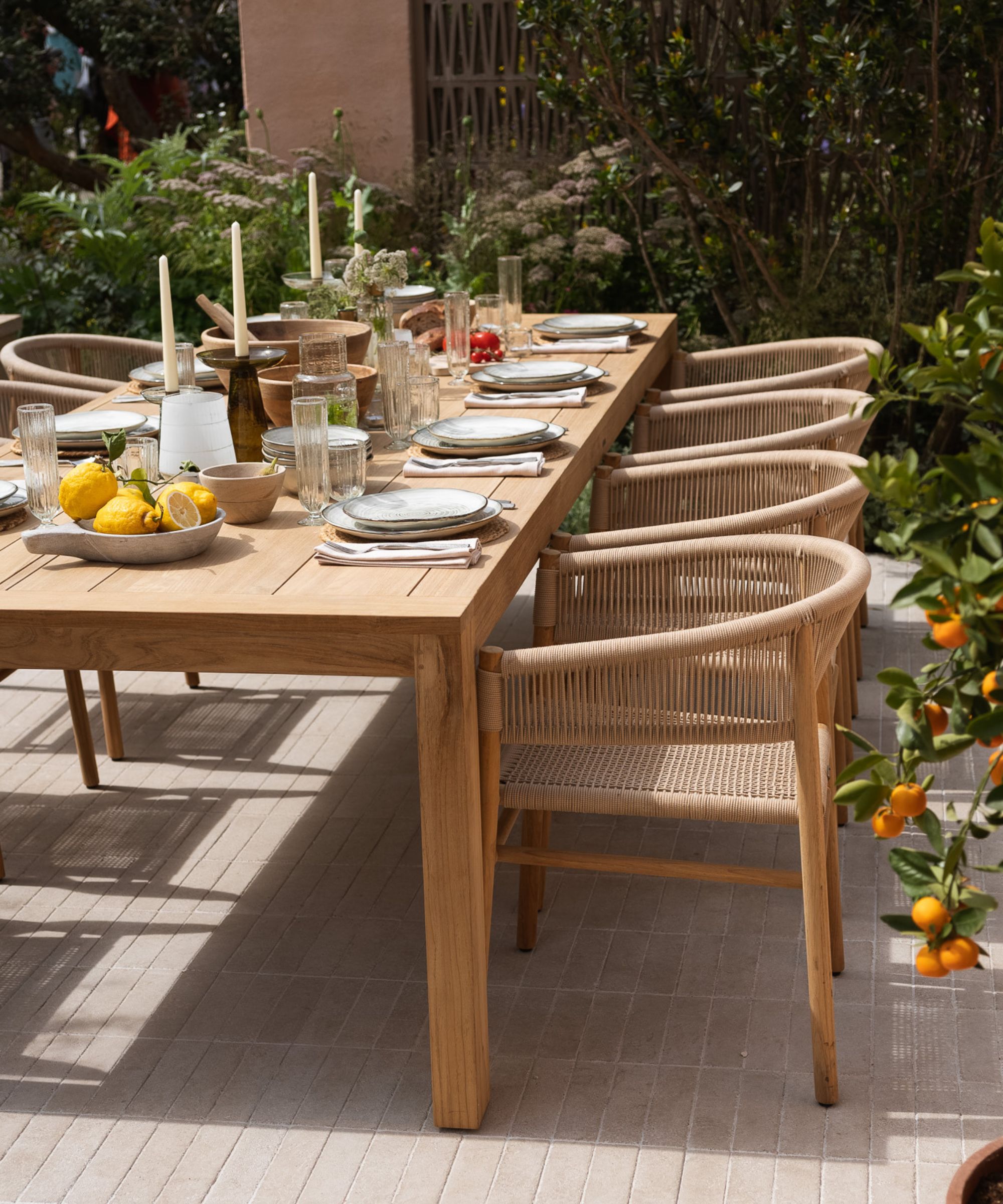
We've all heard of cleaning with lemon juice, but that's not the only home maintenance task lemons are good for – this gorgeous smell can also work well to repel pests.
Brett Bennett, director of operations at PURCOR Pest Solutions adds: 'Many pests hate citrus scents. The strong lemon smell is popular for its mosquito-repellent properties. You can use citrus essential oils, and you can also find this scent in many candles or sprays.'
As well as lemon, leaving orange peels around your patio can also help warn off insects. The peels contain limonene, a natural chemical that is toxic to insects yet harmless to plants and animals.
Design expertise in your inbox – from inspiring decorating ideas and beautiful celebrity homes to practical gardening advice and shopping round-ups.
Another option for deterring pests with gorgeous scents is to plant out citronella shrubs, which, Jeremy Yamaguchi, CEO of Lawn Love, says are amongst the best mosquito repellent plants and 'are an excellent natural pest repellent. Many mosquito repellents, for example, actually contain oil from the citronella shrub, but you can easily grow these shrubs for a more effective, around-the-clock deterrent.
If you want to try citronella to repel mosquitoes, you can buy citronella plants at Walmart and local plant nurseries.
Rocky Beninato, founder and licensed exterminator at Quality Affordable Pest Control also adds, 'for spiders, ants, and silverfish, boil lemon or orange peels in water, then bottle and spray in areas where pests are seen. Citrus oil can also be combined with water and vinegar to create a cleaning solution.'
2. Lavender
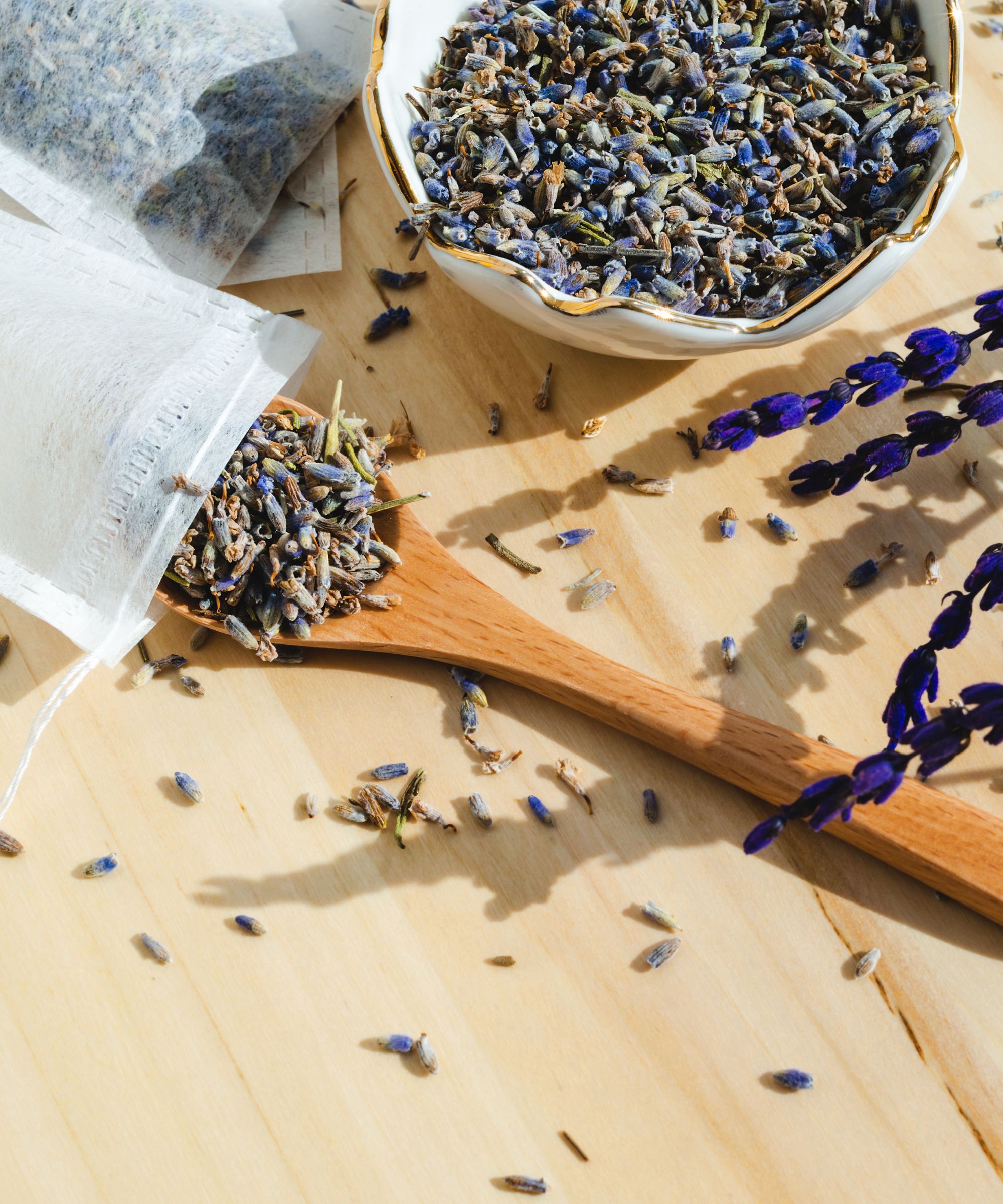
Growing lavender is another yard-friendly way to deter pests and is one of the best plants for pollinators. It can be grown in borders or you can grow lavender in pots near your patio.
'The smell of lavender can be so potent that it masks the smell of other plants, deterring pests who may be seeking out desirable plants,' explains Chrissie Handley, lawn care specialist at Online Turf. 'It targets mosquitoes, flies, and moths whilst attracting beneficial insects like butterflies and bees.'
And if pests are a problem in the home, too, you can grow lavender indoors, or dry lavender buds and put them in sachets. These can be placed anywhere you want to deter pests, such as in drawers and closets, or under furniture.
Lavender Essential Oil | Was $22.99, Now $19.65 at Amazon
Use a few drops of lavender essential oil to calm your mind and promote greater mental clarity.
3. Natural insecticides
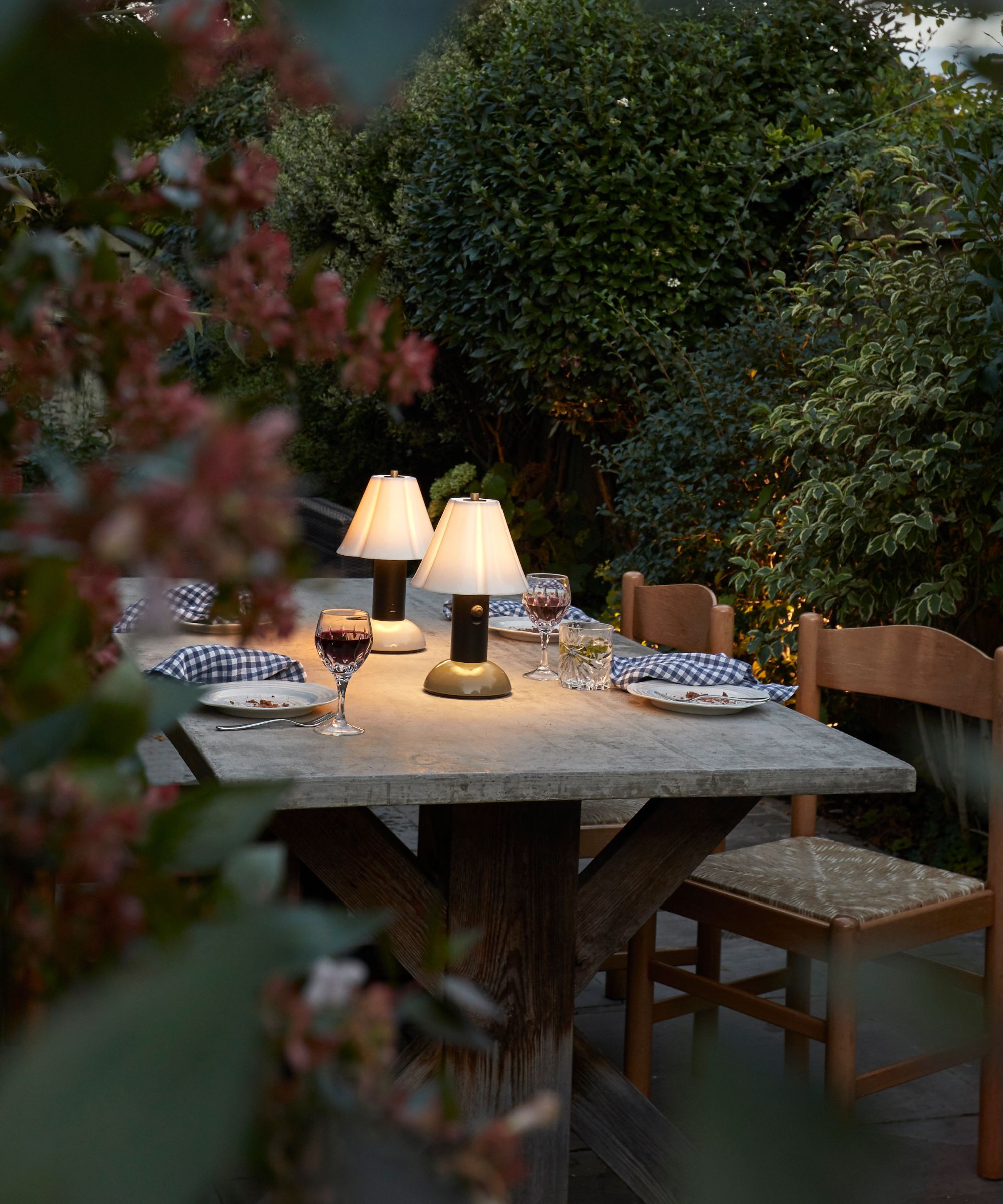
If you're looking for a lovely-smelling store-bought pest control solution, think 'natural insecticides,' says Mark Crames, CEO and chief perfumer of Demeter Fragrance. 'They have recently become a popular DIY method for lawn care, both for their cost-effectiveness and environmentally friendly benefits.
Using a natural alternative to harsh, chemical-based pesticides ensures that they’re not harmful to your plants and, as they biodegrade, reduce the risk of harmful chemical residue into the environment and ecosystem too. Plus, if they smell good that’s always a bonus.'
We like Amazon's Mighty Mint insect and pest control, diatomaceous earth peppermint powder, which kills and repels bugs, including getting rid of roaches naturally.
4. Cedar

If you're looking to get rid of moths, think: cedar.
'Cedar is a naturally strong scent that repels clothing moths, mice, pantry moths, silverfish, carpet beetles, and even cockroaches in some cases,' says Rocky Beninato. 'Cedar blocks or balls can be hung in closets, on hangers, in garment bags, or placed in dressers to deter moths, particularly as they tend to target clothing. Cedar chips can also be filled in sachets and placed in cupboards, pantries, or near entry points.'
You can buy cedar blocks at Amazon – these are the best sellers.
5. Peppermint

'Peppermint targets moths but it can also help to get rid of fruit flies, get rid of earwigs, get rid of silverfish, centipedes, mice, mosquitoes, and it can help to keep spiders away,' says Rocky Beninato.
'You can grow mint in pots outdoors or soak cotton balls in peppermint oil and placing them in entry points, closets, or crawl spaces is an effective way to deter pests. You can also mix peppermint oil and water and use it as a spray around your home or garden.' You can even use peppermint oil to get rid of mice.
You can buy peppermint oil spray at Amazon – Mighty Mint peppermint oil insect and pest spray is the best buy.
6. Eucalyptus
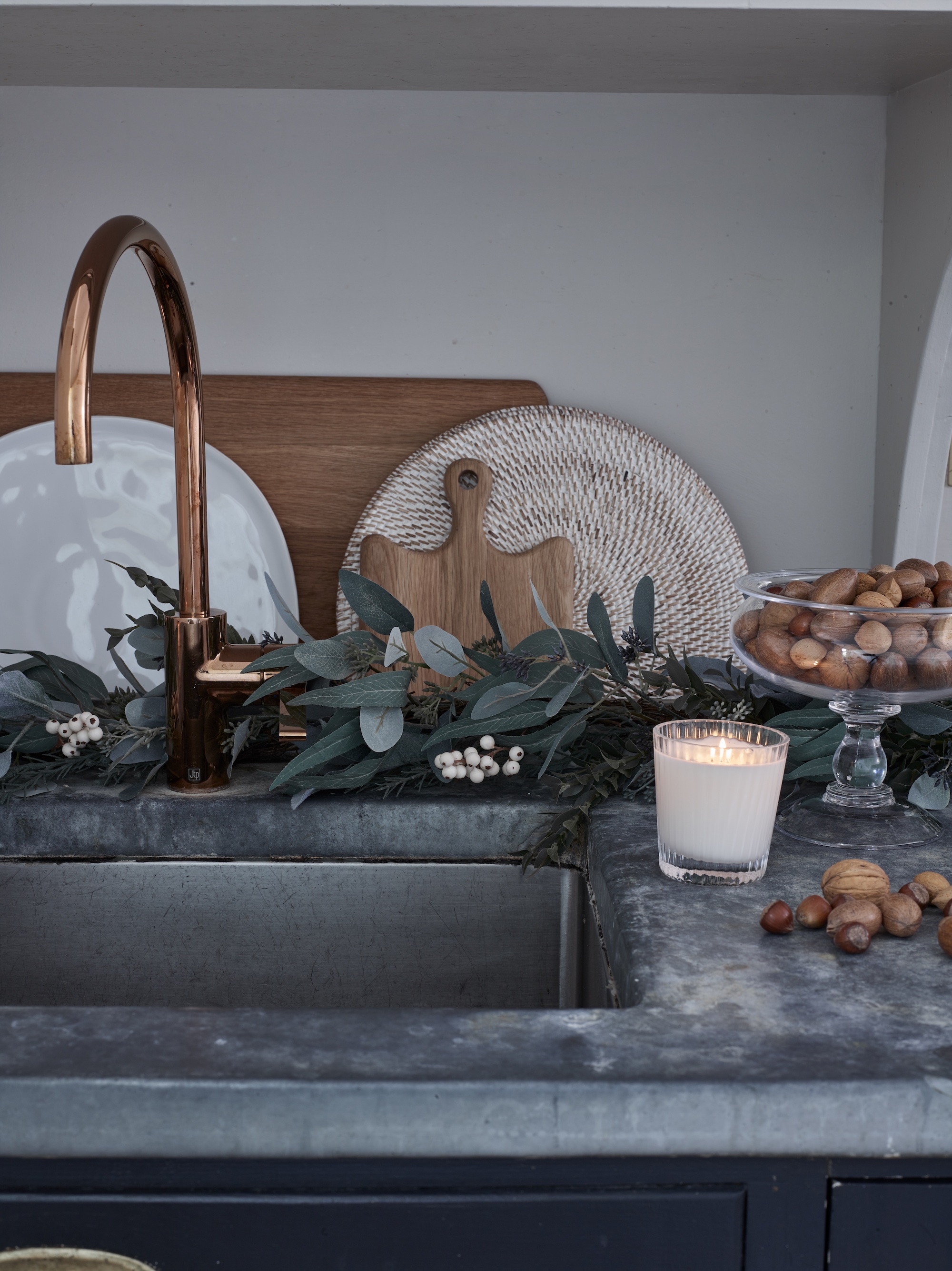
'Eucalyptus is another scent that can repel cockroaches, pantry moths, mosquitoes, and fruit flies in many cases,' says Rocky Beninato.
'Similar to peppermint oil, eucalyptus can be mixed with water and used as a spray solution. Fresh and dried eucalyptus can also be kept in your home in a vase, next to your sink, or hung in your shower, providing beautiful decor, pleasant odors, and pest control all in one.'
Organic eucalyptus essential oil is Amazon's top seller.
7. Herbs
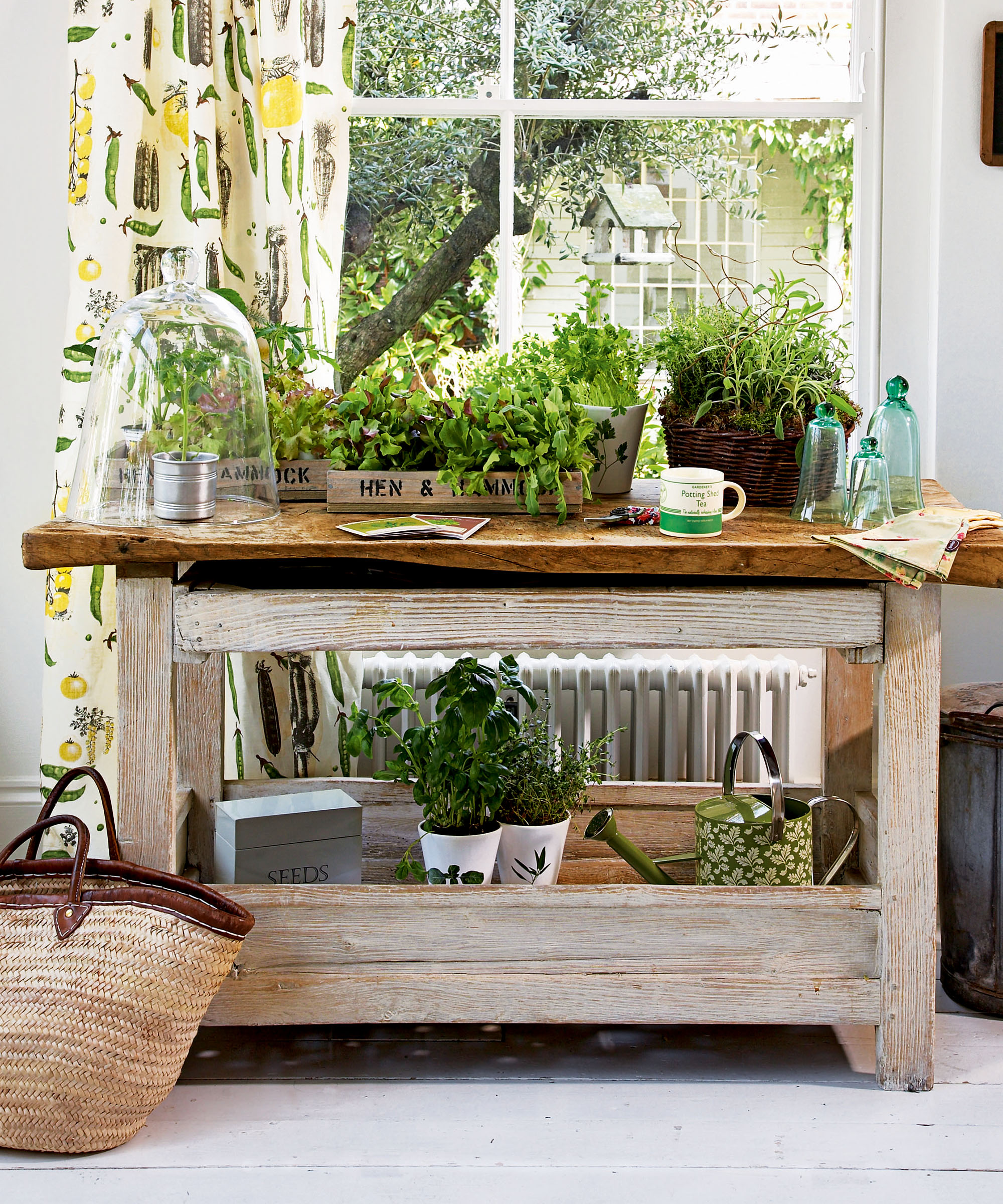
Herbs, such as basil, thyme, and rosemary are some of the best fly-repellent plants and are amongst just some of the aromatic container plants that give off scents ants hate.
Grow them indoors on windowsills or outdoors in containers around lounging and dining areas. You can also burn rosemary to deter pests, too.
8. Marigolds
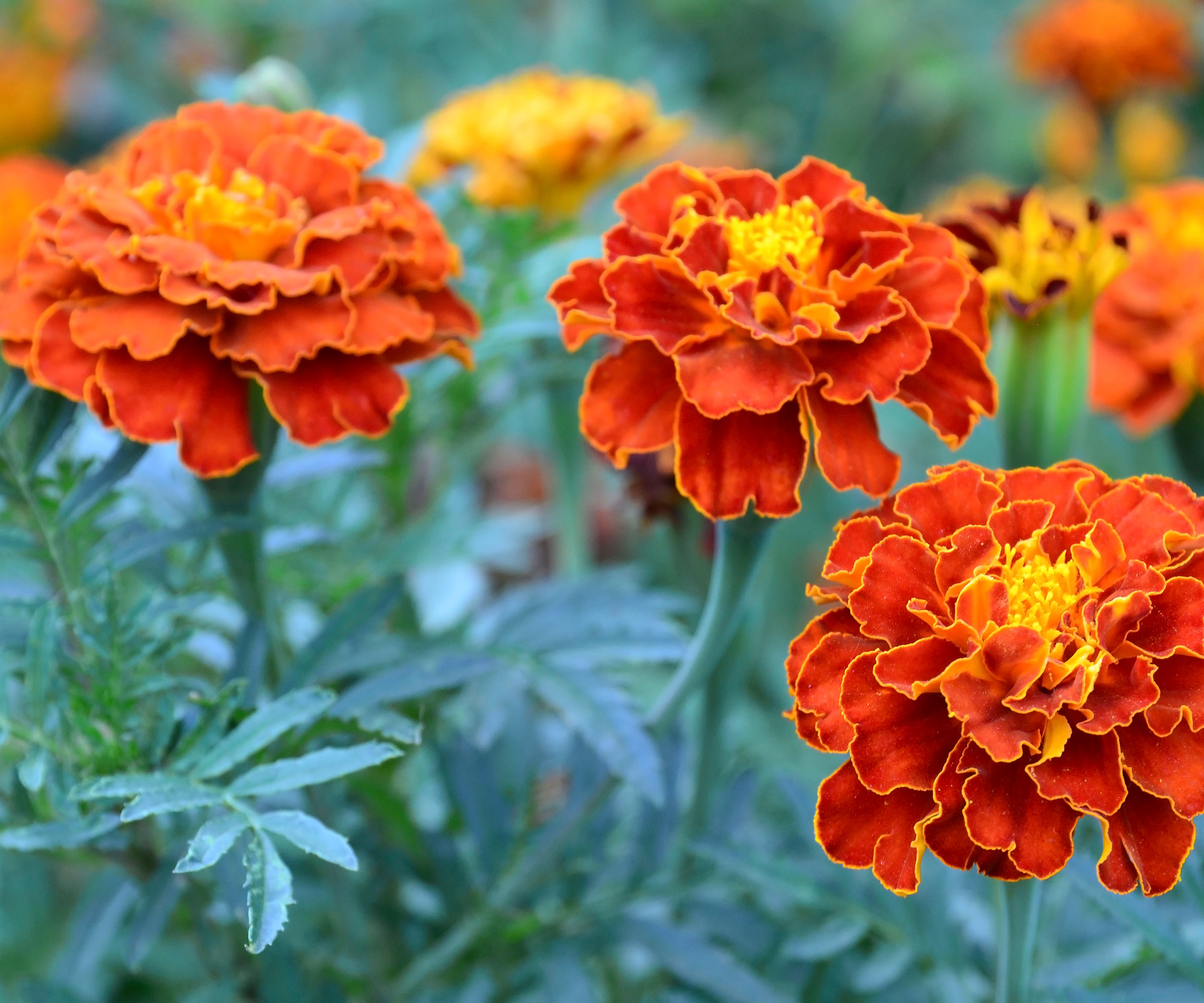
Do marigolds keep bugs away? In short: yes, but only if you choose the strong scented varieties, such as French marigolds, at Walmart rather than modern varieties that don't give off the pungent aroma that pests hate.
Growing marigolds in pots won't just keep pests away – they are also the perfect tomato companion plant, protecting them from bugs that like to eat your crop.
Similarly, pests hate the smell of chrysanthemums and petunias.
9. Tea tree

'Tea tree is another strong scent similar to peppermint that can help to get rid of pantry moths, spiders, lice, and centipedes,' says Rocky Beninato. 'It is a popular essential oil for cleaning purposes and head lice removal, so you may already have it on hand. Combining it with vinegar and water effectively cleans surfaces where pests have been seen.'
You can buy Organic Tea Tree Oil at Amazon.
10. Bay leaves
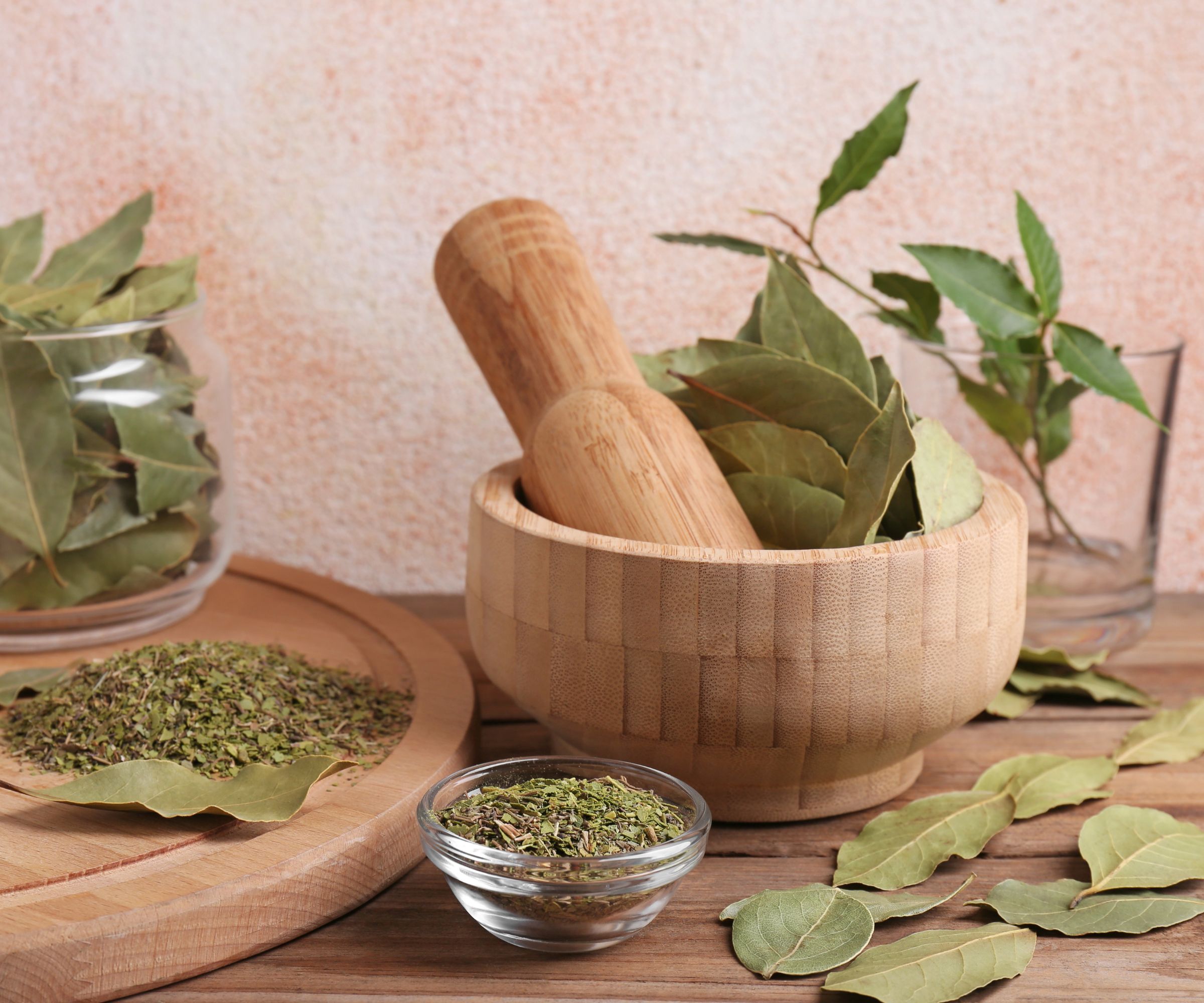
'Bay Leaves are good for keeping pantry moths, cockroaches, mice, earwigs, and silverfish at bay,' advises Rocky Beninato.
'Inside the home, you can use dried bay leaves in your pantry to deter pantry moths or in your sink and bathtub to prevent silverfish. You can also crush bay leaves in satchels and hang or place them where pests may be hiding.'
11. Spices
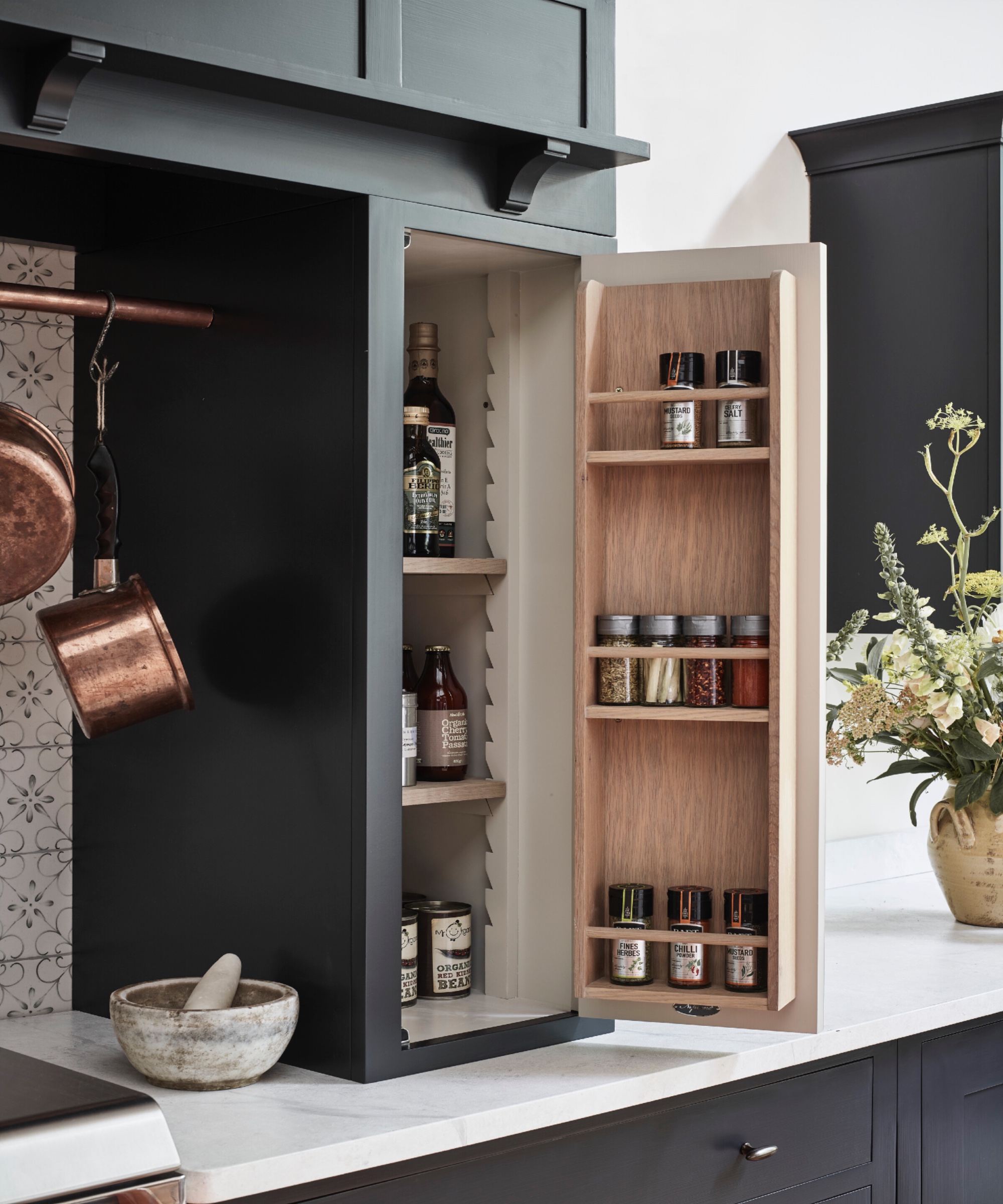
You can use spices to deter common garden pests. Those lovely-smelling spices that we love but pests hate include cinnamon (ants and silverfish), sugar-free vanilla extract (mosquitoes), and cloves (aphids).
FAQs
What perfume do bugs hate?
Bugs hate perfumes that contain citrus in particular. Think perfumes with extracts of lemon and orange, but also lemon verbena. Many insects also hate lavender and peppermint. Choosing room scents or diffusers with these scents will help make your home smell nice and repel bugsall in one.
If you're looking for a quick-to-find bug repellent that smells nice for your houseplants, dish soap is an excellent choice. Diluted in warm water to make a weak solution, and put into a spray bottle, it should be applied to both sides of the plant's leaves and all around the stem. Repeat as necessary. It can be used on garden plants, too.

Lola Houlton is a news writer for Homes & Gardens. She has been writing content for Future PLC for the past six years, in particular Homes & Gardens, Real Homes and GardeningEtc. She writes on a broad range of subjects, including practical household advice, recipe articles, and product reviews, working closely with experts in their fields to cover everything from heating to home organization through to house plants. Lola is a graduate, who completed her degree in Psychology at the University of Sussex. She has also spent some time working at the BBC.
